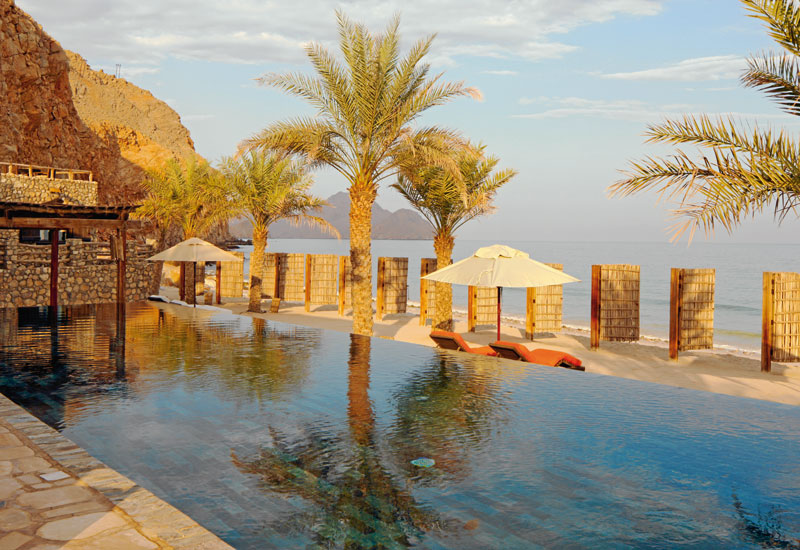Thomas Klein International principal and managing director, Daniel G. During, asks whether the UAE is ready to jump on the luxury ecotourism bandwagon?
The term ‘ecotourism’ first entered industry vernacular in the late 1970s but over the course of the last 30 years, has been used and abused on a global scale. As both international consumers and regional operators, we’re all keen to jump on this particular bandwagon, but have we really thought it through?
For the UAE, the issue of defining a long-term ecotourism vision is still very much a work in progress. Existing properties, including Al Maha — now absorbed into the Starwood megabrand — and Desert Islands Resort by Anantara, set within the Sir Bani Yas island nature reserve in Abu Dhabi’s western region, all have nature and nurture as their core guest-facing proposition, but the country is still waiting for a definitive high-end ecotourism icon.

| Advertisement |
While companies such as Masdar in Abu Dhabi are pushing the renewable energy agenda with test bed technology development, hotel developers and owners across the region and throughout the emerging markets, are still for the large part emulating rather than innovating.
Eco-luxury could be considered a contradiction in terms, but then how far are we prepared to go to deliver a hospitality product that not only shouts eco style from its solar-panel rooftop, but also positions the UAE as a serious contender for the future sustainability crown?
But before I get lambasted for picking on the UAE’s fast-track development, it’s important to point out that, although international eco travel options have never been more readily available, the number and geographical spread of truly luxurious, yet eco-minded properties, is yet to make a dent in the Middle East’s hospitality portfolio.
Sonu Shivdasani, founder of the Six Senses brand, recgonised for its philosophy of responsible travel, avoids over-use of the eco tag entirely, preferring to talk about ‘intelligent travel’.
To date, Six Senses has limited presence in the region with Six Senses Zighy Bay on Oman’s Musandam Peninsula and the Evason Ma’In Hot Springs & Six Senses Spa in Jordan. Both locations have attracted equal amounts of commendation and criticism, but certainly fit the bill as luxury eco retreats.
According to the International Ecotourism Society in Washington, ecotourism is defined as ‘responsible travel to natural areas that conserves the environment and improves the wellbeing of local people’.
A pretty straightforward definition, I’m sure you would agree; and the UAE — and indeed the wider Gulf region — certainly has a number of undiscovered areas of natural beauty that have sympathetic development potential.
Luxury is, by its very definition, synonymous with indulgence, whereas eco-awareness conjures up images of obvious non-consumption. But because luxury resorts are often located in some of the world’s most naturally beautiful, and therefore fragile, environments, the need to walk the sustainability talk is growing in importance as the expectations of an increasing number of well-heeled, socially-conscious travellers look for 100% authenticity.
Shining Example
The Australian Outback is home to a favourite example of mine — Longitude 131°. A tented resort, with just 15 ‘rooms’, this eco development sits on top of a dune with the stilted tents balanced above the desert sands to avoid disturbing the natural biodiversity of the site.
The resort uses renewable energy 365 days of the year, running on solar power — even when the temperature rises to 48 degrees.
One of the first projects approved under the Commonwealth Environment Protection and Biodiversity Conservation Act, the resort was only given the development green light after extensive cultural mapping and wildlife protection studies, and was constructed using special machinery, to protect the local ecology.
And even North America is getting in on the ecotourism act. Calling itself the ‘greenest luxury hotel in America’ — not difficult in my opinion — the Bardessono Napa Valley in California, which opened in February 2009, was designed with LEED Platinum certification, from the US Green Building Council, in mind.
The resort’s facilities and design does go beyond the usual ‘please re-use your towels’ mantra, with a geothermal heating system; photovoltaic panels; and a gargantuan ‘Earth Tub’ to compost food scraps from the garden and kitchen.
All this is food for development thought, and with untapped potential in this region, presents a niche market opportunity that a high-end eco-hungry audience — and forward-thinking industry leaders — are more than ready to experience.
An Argentinean native, Daniel G. During has been living and working in Dubai for over 15 years. He founded Thomas Klein International (TKI) in 2001 to offer a complete range of design, consulting and management services for investors and operators in the hospitality, entertainment and leisure sectors throughout the Middle East and beyond. Contact Daniel at Daniel@thomaskleingroup.com or visit www.thomaskleingroup.com









 Search our database of more than 2,700 industry companies
Search our database of more than 2,700 industry companies










Aug 22, 2011 , United Arab Emirates
Although the UAE and countries around the region have made an admirable push into the "eco-friendly" resorts, it is also important to take into consideration their use of local products in construction / consumables (food, water, toilet paper....) and more importantly the hiring of local citizens...
Aug 22, 2011 , Canada
Nothing can take the place of smelling the fresh air and green grass in the morning.This is just another way of us getting back to nature and saving the planet.